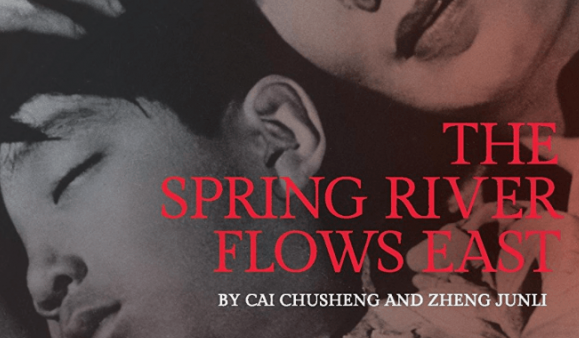
The Spring River Flows East (1947) DVD Review

“How much sorrow can one man have to bear? As much as a river of spring water flowing east.”
These are the opening and closing lines to Cai Chusheng and Zheng Junli’s The Spring River Flows East (also known as The Tears of the Yangtse) (1947), an epic family saga that is covered in two distinct chapters, ‘Eight War Torn Years’ and ‘The Dawn’, both of which can be viewed as 2 separate films as the total running time comes to 179 minutes (each part is similar in length). Following it from beginning to end these lines ring true throughout the film. It follows struggles that any contemporary Chinese viewer would have been able to relate to. The period the film mostly covers the Second World War period (which for the Chinese began in 1931 with the Japanese invasion of Manchuria). The Japanese arguably treated the Chinese with more disdain and hardship than any others peoples they conquered. The film begins in 1931 shortly after the Mukden Incident when the Japanese staged a terror attack as a pretext to invade Japan when a young worker in a textile factory, Zhongliang meets and falls in love with Sufen, a teacher who lectures workers at the factory. Shortly after they marry they have a son. Sufen becomes involved in insurgent activity. The invasion and control by the Japanese increases with an escalation of reprisals against insurgents. As the Japanese invade Shanghai and the terror continues, Zhongliang becomes separated from his family. He makes his way to the relative safety of Chungking while Sufen remains in Shanghai. There the family’s hardship increases where they are forced into hardship and imprisoned by the Japanese. Eventually Zhongliang’s father is hung in front of the rest of the family. Meanwhile, Zhongliang, in his own head believing that his wife and child have been killed meets Wang Lizhen, the daughter of a business magnate and settles down to a comfortable bourgeois life while his wife is living in poverty.
A couple of years ago BFI released a strong example of early post World War Chinese cinema, Mei Wu’s Spring in a Small Town (1948). In April BFI will be releasing another film from early Chinese cinema, Wu Yonggang’s The Challenge (1948), an even earlier film dating from 1934. These releases highlight an almost forgotten period in world cinema. Since the 1980s Chinese cinema has enjoyed some international critical success. In the 1960s a number of well made martial-arts films, even though most of these films were made in the autonomous Hong Kong. However, earlier than this Chinese cinema was pretty much finished for a number of years after the Peoples Revolution in China in 1949 and therefore it is welcome to see the release of many of these films that pre-date Maoist China.
The Spring River Flows East is a harsh film – there is no happy ending here and, as already mentioned it would have resonated strongly with a contemporary audience on its release. A more recent film, The City of Life and Death (2009), following the so-called Rape of Nanjing highlights further the terrible conditions the Chinese suffered under the Japanese. Therefore, the lack of faith, hope and the irony of war does not allow for a happy ending being that this film was made such a short time after the horrors (and just before new ones). The film was newly restored by the China Film Archive and is now the first time that it has been seen or released in the UK. The sound quality of the film is not great, but it’s drama is outstanding and quite a revelation for a film so little seen in the West.
The only extra on the disc is a 1 minute film of the ancient city of Chungking filmed in 1930.
Chris Hick

